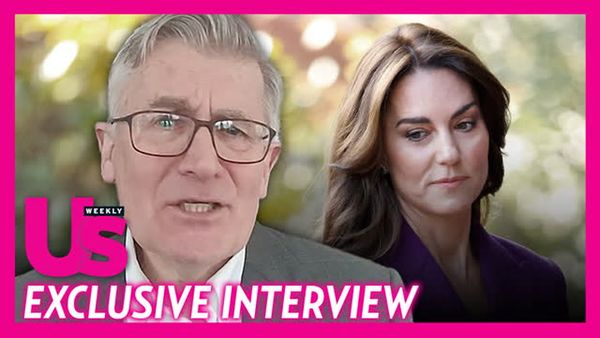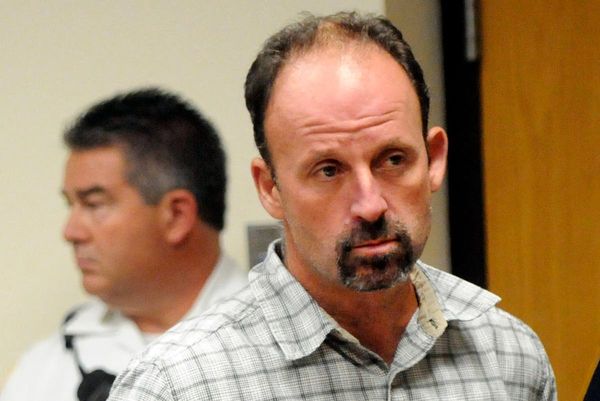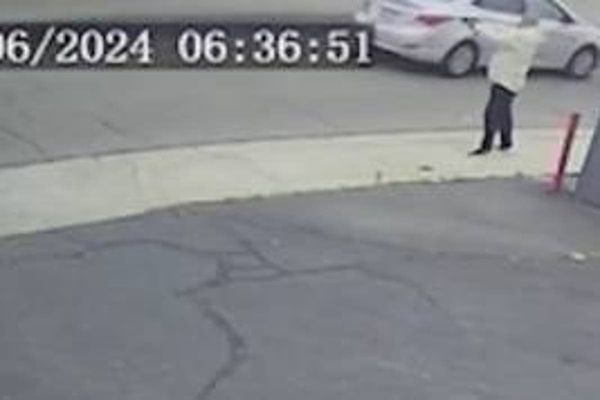
The leaders of New Zealand’s two major political parties have made a last ditch effort to sway votes in their favour on the final day of campaigning before the country’s general election.
The leaders clashed in their most heated debate yet – the last of the campaign, which aired on TVNZ on Thursday night. In his final message, Labour’s Chris Hipkins warned the public that a vote for the opposition would bake in poverty and see action on climate change go backwards.
“In tough times it’s natural to look for change, but change has consequences – if Christopher Luxon wins, you lose,” Hipkins said. “There is a better way – Labour will help you with the cost of living and grow the economy.”
National’s Christopher Luxon used his last message to promise to reduce the cost of living, provide tax relief, restore law and order and improve healthcare and education.
“Kiwis know we can be so much better than this – National has the team, energy and positive plans to take us forward,” Luxon said.
Polling suggests the governing Labour party is set to be ousted by the right bloc in Saturday’s election, even as predictions of a green wave for Labour’s traditional coalition partner, the Green party, may result in a record 15 seats in parliament. Polls have indicated Labour is unlikely to hit the threshold of 61 seats needed to govern, even with the Green party’s predicted seats. Te Pāti Māori – Labour’s other likely coalition partner on the left – is also struggling to gain traction.
While hope may not be entirely lost for the left, after Labour gained some support in recent polls, it may be too little too late, says Lara Greaves, an associate professor of political science at Victoria University of Wellington.
“It’s not clear to what extent voter turnout will play a role, and it’s not clear whether underestimating Labour at the polls will play out as well … there are so many factors that it feels like a close one,” Greaves said.
New Zealand’s predicted shift to the right would end Labour’s six years in office, which oversaw the Covid-19 pandemic years, the Christchurch mosque attacks and the Whakaari volcano eruption, and would firmly draw a line under Jacinda Ardern’s era of politics.
The party was voted into power on a wave of “Jacindamania” in 2017 and required the Greens and the minor New Zealand First party to secure its victory under New Zealand’s electoral system – a version of the mixed-member proportional (MMP) format. Then, in 2020, off the back of its world-leading pandemic response, it was returned to power in a landslide – giving it the biggest mandate of any New Zealand government in nearly 30 years.
In the years since, the rising cost of living and post-pandemic malaise has translated into dissatisfaction with the political status quo, and the party no-longer has Ardern’s extraordinary star-power to bolster its appeal, after her shock resignation in January.
But Labour’s misfortune has not translated into a surge of support for the centre-right National Party. Polling in the lead up to the election has revealed confidence in the centrist parties has slipped away in favour of the minor parties. The majority of voters feel the country is on the wrong track, reversing two decades of consistent public satisfaction under both Labour and National governments.
While that spells good news for parties on the left such as the Greens, which is hoovering up votes from those who want to see stronger action on climate change and transformative investment in the social security net, it has also resulted in a boost for the more radical right-wing and populist parties.
“I would say it is bittersweet for the Greens because if the left loses they are not part of the government, but they will have a lot of new MPS, a lot of new talent, a lot of future ministers there that they can build up and create quite a basis for opposition,” Greaves said.
But ultimately, the winner this election may be Winston Peters and his populist New Zealand First party “because they will hold quite a bit of power,” she said. Support for New Zealand First – which was ousted in the 2020 election – has jumped in the last few weeks of the election campaign.
Polling suggests National will need to rely on both the libertarian-right Act party and New Zealand First (which has ruled out working with Labour again) in order to form a government, which could result in a much more conservative government than New Zealand is used to.
What the relationship between the three parties will look like in practice is anyone’s guess, Greaves said. And New Zealanders could be in for a wait – in previous elections where Peters has held that balance of power, he has drawn out negotiations for weeks, Greaves said.
“If you look at 1996, Winston Peters made us all wait for two months … people were putting up Christmas decorations … in 2017 it took him four weeks … so it could be quite some time.”







